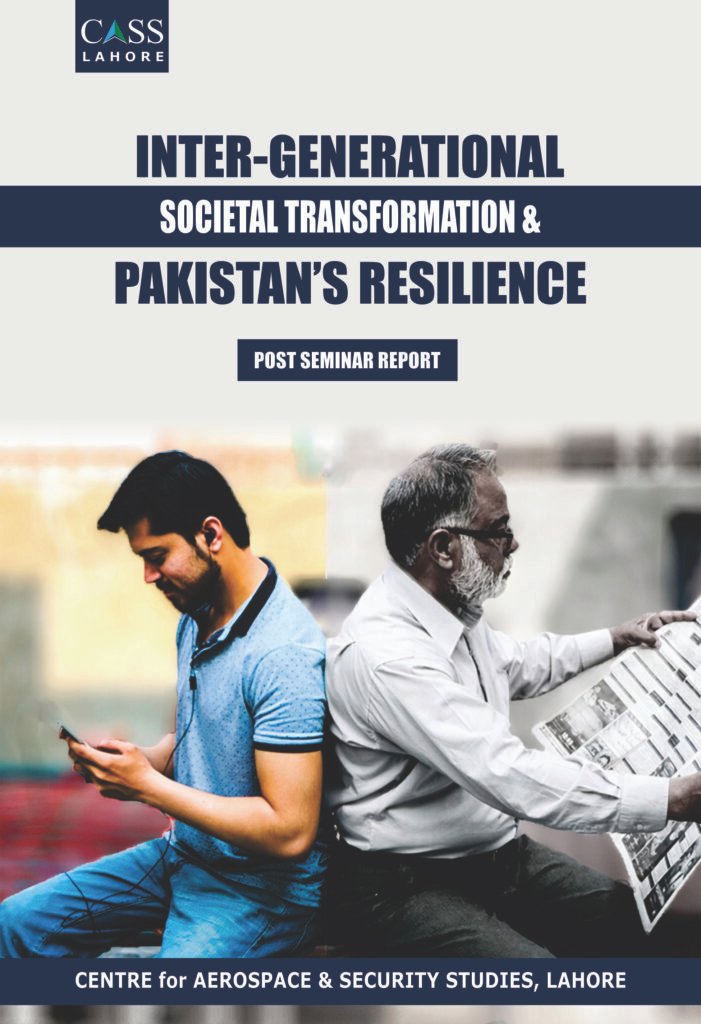
Inter-Generational Societal Transformation and Pakistan’s Resilience
August 22, 2024
PRESIDENT
Air Marshal Asim Suleiman (Retd)
SEMINAR COORDINATOR
Dr Bilal Ghazanfar
MASTER OF CEREMONY
Naba Fatima
Executive Summary
A seminar titled “Inter-Generational Societal Transformations And Pakistan’s Resilience” was organised by the Centre for Aerospace and Security Studies (CASS), Lahore on 22 August 2024. The discussion commenced with the keynote address by Mian Imran Masood, Former Provincial Education Minister. It was followed by insightful presentations by two experts, Mr Oves Anwar, an eminent legal expert, and Dr Yaqoob Khan Bangash, a distinguished academic. An extensive interactive session, followed by concluding remarks by Air Marshal Asim Suleiman (Retd), President CASS, Lahore, rounded up the seminar.
Dr Bilal Ghazanfar opened the seminar by stressing the significance of understanding intergenerational relationships for national development. He highlighted that in Pakistan, where over 65 percent of the population is under 30, the challenge lies in bridging generational divides shaped by varied experiences and values. He added that Pakistan’s youthful demographic, with a median age of 20.4 years, offers diverse perspectives and skills, but technology has heightened these generational divides by impacting communication and perceptions. To foster national cohesion and growth, it is crucial to manage technology inclusively, understand generational needs, and promote meaningful dialogue. Dr Ghazanfar emphasised that addressing these dynamics thoughtfully is key to building a more resilient and prosperous future for Pakistan.
Mian Imran Masood, in his keynote address, highlighted the importance of intergenerational dialogue for national progress. He discussed various socio-political and economic divides in Pakistan, including the contentious 18th Amendment, provincial biases, religious sectarianism, and socioeconomic disparities, which impact national unity and development. Mr Masood emphasised the generational divide, noting the shift from “digital immigrants” to “digital natives,” and the need to bridge this gap by integrating the wisdom of older generations with the innovation of the younger. He criticised outdated policies restricting online and distance learning, advocating for reforms to better align with global trends and empower Pakistan’s youth. Concluding, he envisioned transforming the generational divide into a bridge for progress, asserting that uniting generations is crucial for a more resilient and cohesive future for Pakistan.
The second speaker of the day, Mr Oves Anwar, explained that Gen Z’s comfort with technology and challenge to traditional norms are driving significant changes across various sectors. Mr Anwar emphasised the need to respect and integrate Gen Z’s innovative approaches with the experience of older generations. He criticised outdated policies and restrictive state interventions that hinder digital growth and noted Gen Z’s proactive role in recent movements, such as those in Bangladesh. Mr Anwar stressed the importance of adapting governance to the digital age and meeting Gen Z’s demand for transparency and authenticity.
The third speaker of the day, Dr Yaqoob Khan Bangash, delved into the critical intersection of generational experiences and the resilience of the next generation. Dr Bangash described resilience as a double-edged sword, asserting that while it is valuable, it should not be the ultimate goal. He observed that Generation Z’s rapid technological engagement reflects a constant craving for change, often without strategic direction. He cited Bangladesh’s recent political shifts as a cautionary tale for Pakistan, noting the need to address the generational divide and the rise of global interconnectivity, which challenges traditional nation-state structures. Additionally, Bangash highlighted the erosion of meaningful community engagement due to digital over-reliance and stressed the necessity for honest intergenerational dialogue. He argued that acknowledging historical truths and addressing past mistakes is crucial for bridging gaps between generations and fostering a cohesive sense of citizenship and patriotism.
The interactive session explored ways to bridge generational gaps and enhance youth involvement in Pakistan’s policymaking and societal development. Dr Yaqoob Khan Bangash advocated for a Pakistan-specific generational framework, critiquing Western classifications and stressing the need for a local context. Mr Masood highlighted the importance of integrating youth through effective policies and education, addressing emotional instability exacerbated by social media, and emphasising the role of the family in character development. Both speakers recognised the challenges of Pakistan’s digital infrastructure but remained optimistic about the adaptability of younger generations in digital careers. They also called for intergenerational collaboration to strengthen economic resilience and stressed aligning educational curricula with market needs to leverage Gen Z’s skills for economic growth.
In his concluding remarks, Air Marshal Asim Suleiman (Retd) said that as these generational differences collide, a growing number of people in our society feel marginalised, disengaged, and alienated from the broader national discussion. This growing disconnect threatens Pakistan’s capacity to tackle crucial issues like national development, political stability, and social advancement. If left unchecked, this divide could undermine our ability to build a unified, resilient society capable of meeting the challenges of the 21st century. He said that the key to our future resilience lies in fostering inter-generational dialogue, understanding, and collaboration. He added that by uniting the strengths of both the older and younger generations, we can create solutions that honour our past while meeting the demands of the future.
Guest Speakers
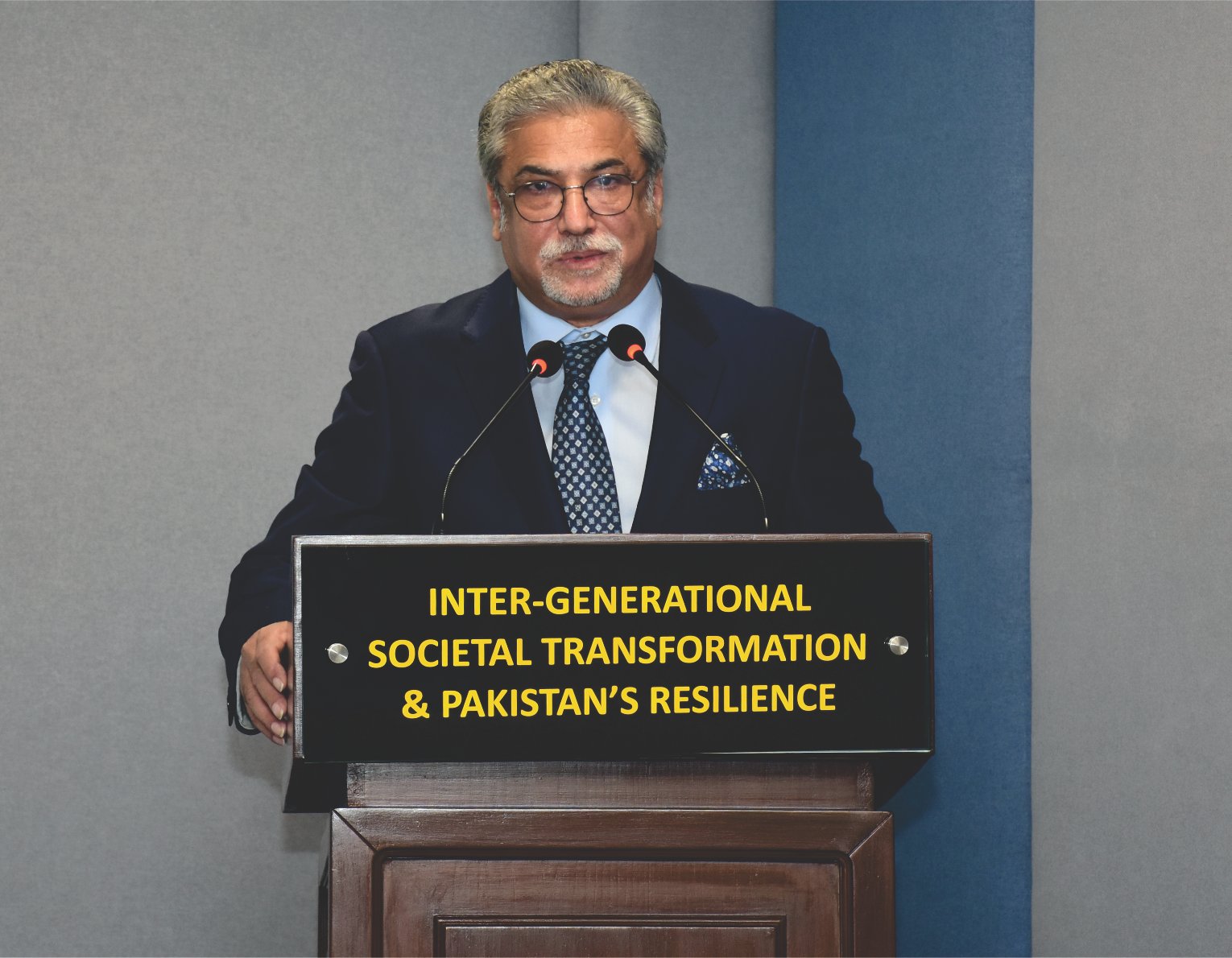
Mian Imran Masood
Former Minster Education, Punjab/ Vice Chancellor University of South Asia
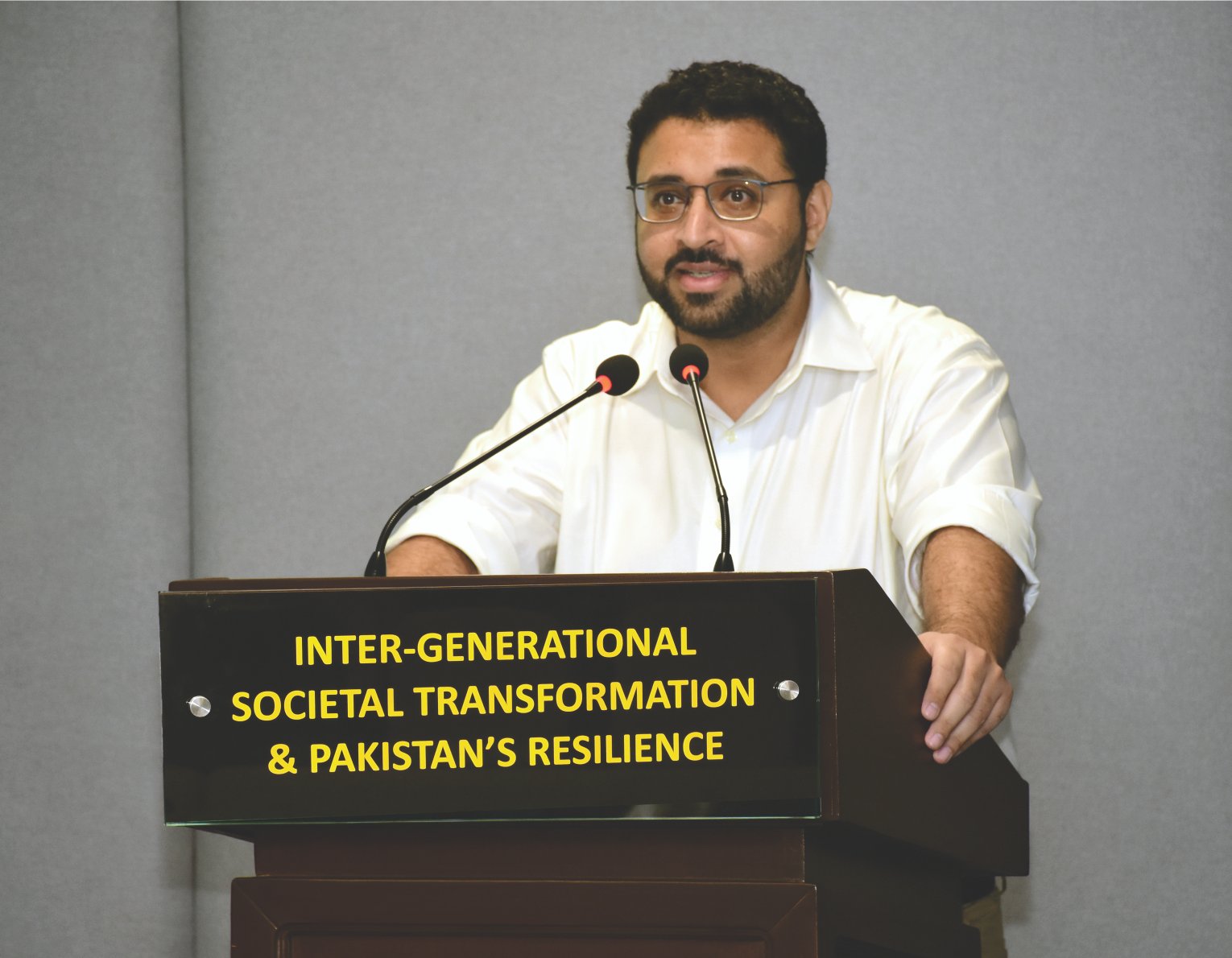
Mr Oves Anwar
Director, Research Society of International Law
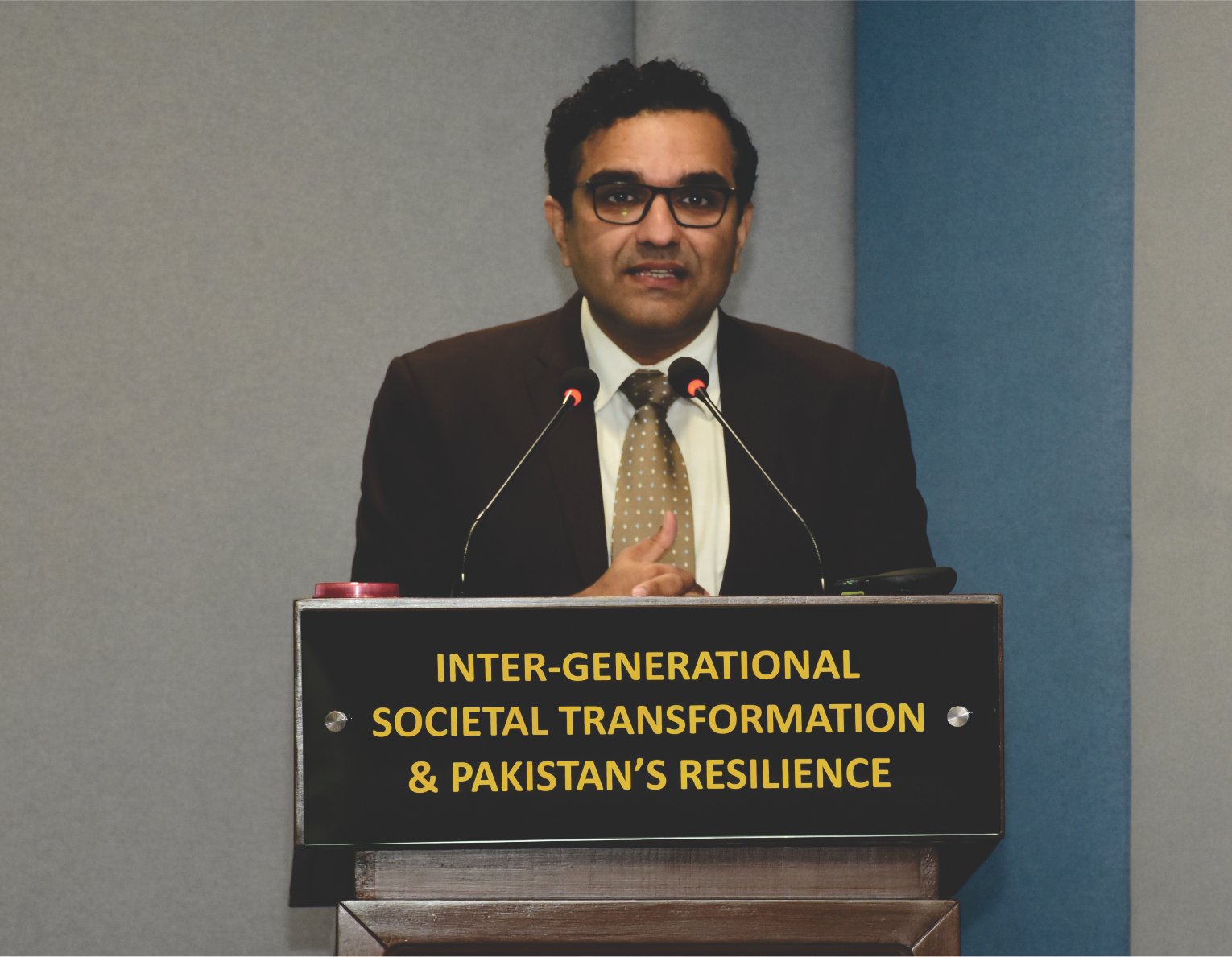
Dr Yaqoob Khan Bangash
Dean of Faculty of Humanities & Social Sciences Information Technology University
CASS Speakers
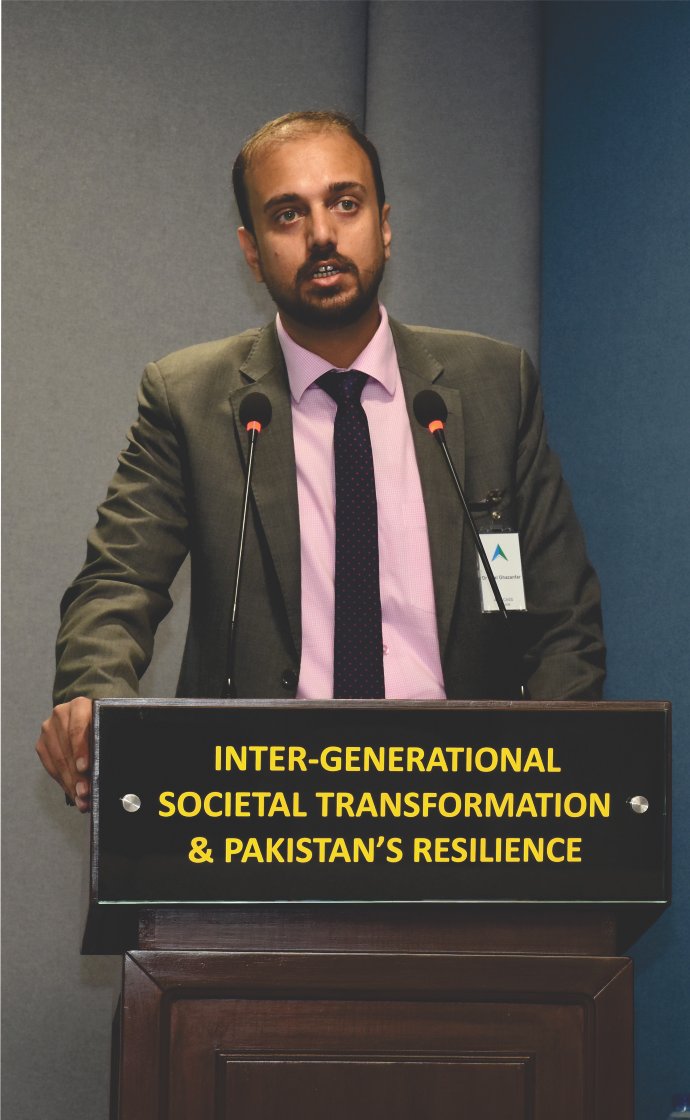
Dr Bilal Ghazanfar
Associate Senior Researcher, CASS Lahore
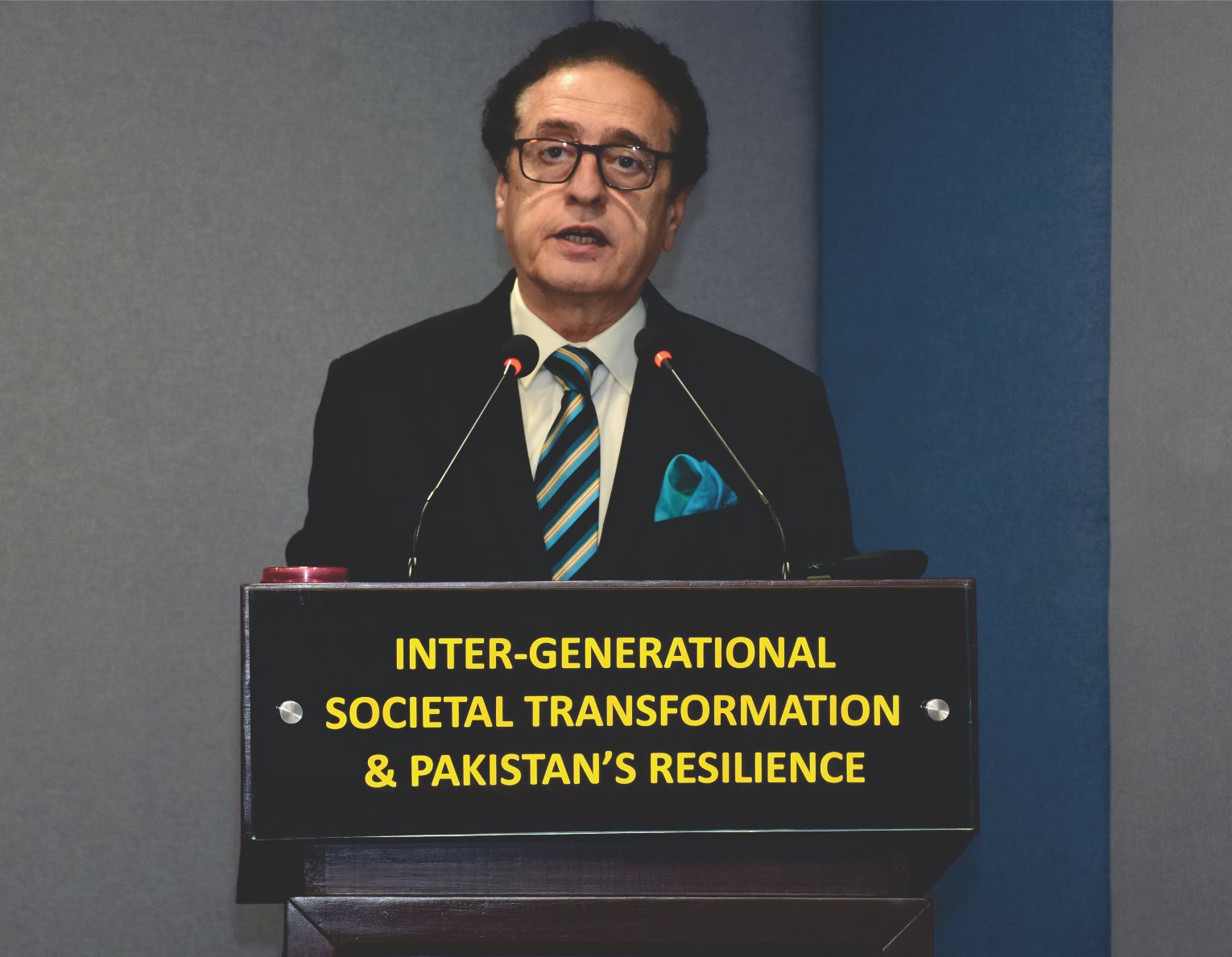
Air Marshal Asim Suleiman (Retd)
President, CASS Lahore
CASS LAhore

The Centre for Aerospace & Security Studies (CASS) was established in July 2021 to inform policymakers and the public about issues related to aerospace and security from an independent, non-partisan and future-centric analytical lens.


